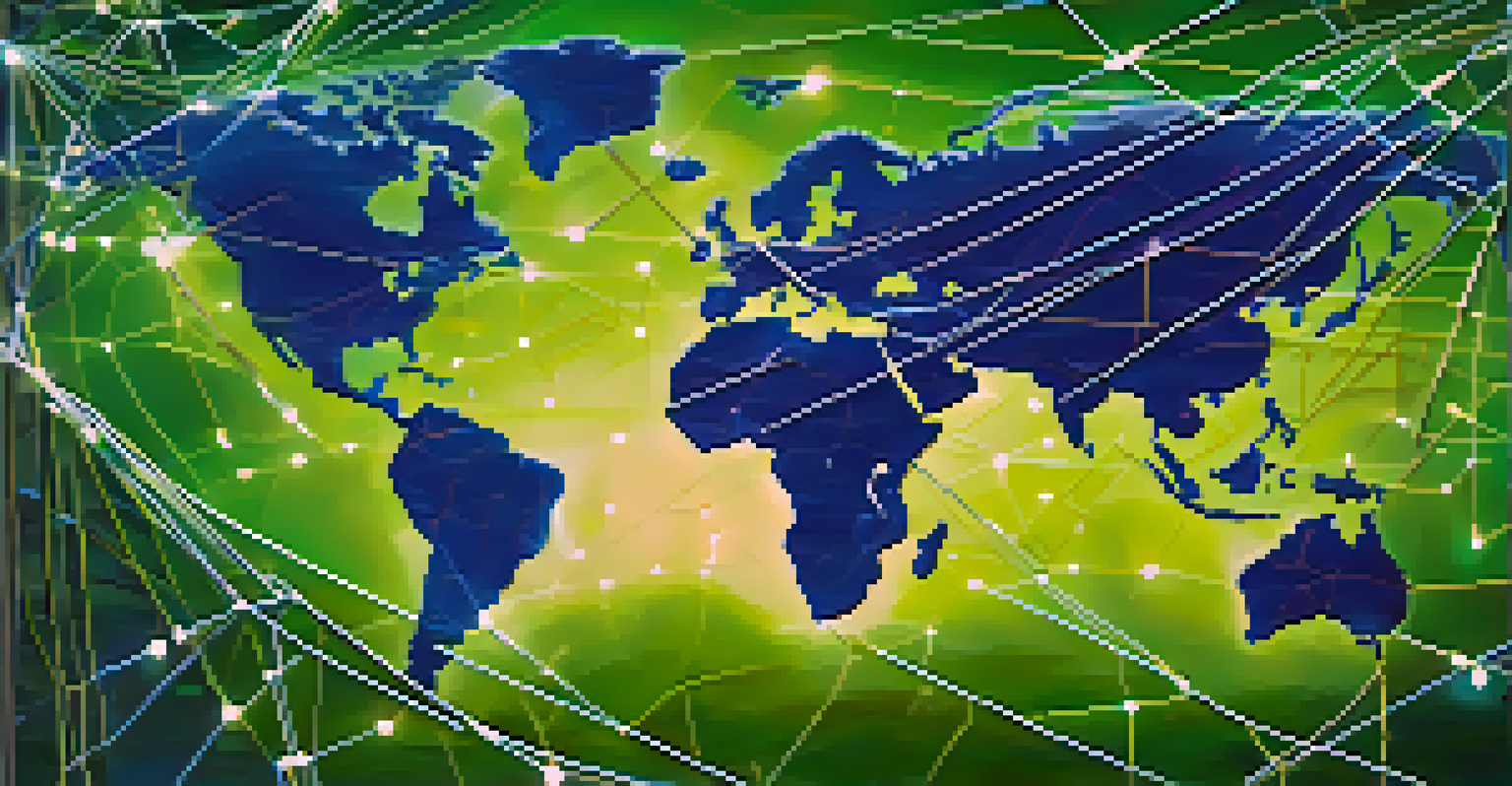Key Benefits of DAOs Over Traditional Organizational Structures

Enhanced Transparency in Decision-Making Processes
One of the standout benefits of Decentralized Autonomous Organizations (DAOs) is their inherent transparency. All decisions and transactions are recorded on a blockchain, allowing anyone to verify actions taken by the organization. This level of openness fosters trust among members, as everyone can see how decisions are made and funds are utilized.
In a decentralized world, the power lies with the people, and that is where it should be.
In traditional organizations, decision-making can often seem shrouded in secrecy, leading to skepticism among employees and stakeholders. DAOs eliminate this uncertainty by making processes visible and accessible, ensuring that all voices can be heard and considered. This not only empowers members but also encourages a culture of accountability.
Moreover, transparency in DAOs can lead to better decision quality. When everyone has access to the same information, discussions can be more informed, and diverse perspectives can be integrated. This collaborative approach can generate innovative solutions that might be overlooked in a more hierarchical structure.
Decentralization and Distributed Power Dynamics
DAOs operate on a decentralized model, which means that power is distributed among all members rather than being concentrated in a few hands. This shift in power dynamics can lead to more democratic decision-making, where every member has a say and can contribute to the direction of the organization. In contrast, traditional organizations often have rigid hierarchies that can stifle creativity and innovation.

The decentralization of authority in DAOs encourages active participation and collaboration. Members are more likely to engage when they know their input matters, leading to higher motivation and satisfaction. This inclusiveness can also result in a richer variety of ideas, fostering a more dynamic and responsive organization.
Transparency Builds Trust in DAOs
The inherent transparency of DAOs fosters trust among members by allowing everyone to verify decisions and transactions.
Additionally, distributed power minimizes the risk of corruption or mismanagement that can occur in centralized systems. With checks and balances built into the DAO structure, the likelihood of any single entity wielding excessive influence is greatly reduced, promoting fairness and ethical practices.
Greater Member Engagement and Ownership
DAOs are designed to enhance member engagement by allowing individuals to have a stake in the organization. Typically, members hold tokens that represent their voting power and influence over decision-making. This shared ownership creates a sense of responsibility and commitment, as members have a direct impact on the organization’s success.
Transparency breeds trust, and trust is the foundation of any successful organization.
In traditional settings, employees might feel disconnected from the broader goals of the organization, especially if they lack visibility into decision-making. In contrast, DAOs encourage active participation by providing platforms for discussion, voting, and collaboration. This sense of belonging can lead to higher retention rates and a more motivated workforce.
Furthermore, engaging members in the decision-making process can lead to better alignment of goals and values. When individuals feel that they are part of the organization's journey, they are more likely to contribute positively, creating a vibrant community and driving collective success.
Increased Efficiency and Cost-Effectiveness
DAOs leverage smart contracts—self-executing contracts with the terms of the agreement directly written into code—to streamline processes. This automation reduces the need for intermediaries, leading to quicker decision-making and execution of tasks. In a traditional organization, multiple layers of approval can slow down processes, but DAOs bypass these bottlenecks.
Moreover, the reduced reliance on intermediaries can significantly lower operational costs. Traditional organizations often incur expenses related to management, administration, and compliance, but DAOs can operate with minimal overhead. This efficiency allows resources to be allocated more effectively, benefiting all members.
Decentralization Empowers Members
DAOs distribute power among members, promoting democratic decision-making and encouraging active participation.
The ability to quickly adapt to changes and make decisions in real-time is another advantage of DAOs. In a fast-paced environment, organizations need to be agile. DAOs facilitate this agility by allowing members to propose and implement changes quickly, ensuring that the organization remains relevant and competitive.
Global Reach and Inclusivity
DAOs operate on the internet, which means they can draw members from across the globe, creating a diverse and inclusive community. This global reach allows for a variety of perspectives and ideas, enriching the decision-making process. Traditional organizations, bound by geographical limitations, may miss out on this wealth of information and insight.
Inclusivity in DAOs means that anyone, regardless of background or location, can contribute. This open model encourages participation from individuals who may have been marginalized in traditional settings, promoting diversity and innovation. The more diverse the organization, the more varied the solutions it can develop.
Additionally, the ability to collaborate across borders enhances creativity and problem-solving. Members from different cultures and experiences bring unique insights that can lead to groundbreaking ideas, making DAOs particularly well-suited for tackling complex global challenges.
Tokenomics: Aligning Incentives and Rewards
Tokenomics, the economic system surrounding a cryptocurrency or token, plays a crucial role in DAOs by aligning member incentives with organizational goals. Members earn tokens for participation, which can be used for voting or traded for value. This system encourages individuals to actively contribute, as their efforts directly impact their rewards.
In traditional organizations, rewards can sometimes feel detached from individual contributions. Employees may work hard without a clear understanding of how their efforts translate into success. DAOs address this disconnect by creating a direct link between participation and reward, increasing motivation and engagement.
Tokenomics Enhances Engagement
Through tokenomics, DAOs align member incentives with organizational goals, creating a direct link between participation and rewards.
Furthermore, tokenomics fosters a sense of community ownership. When members see the tangible benefits of their involvement, they are more likely to advocate for the organization and work collaboratively towards its goals. This alignment of interests creates a stronger, more united organization.
Resilience Through Community Governance
Community governance is a fundamental aspect of DAOs that contributes to their resilience. By allowing members to participate in governance, DAOs can collectively navigate challenges and adapt to changes more effectively. This collaborative spirit ensures that the organization can withstand external pressures and internal conflicts.
In contrast, traditional organizations often face challenges when top-down decisions lead to discontent among employees. This can create friction and impede progress. DAOs, however, can harness the wisdom of the crowd, leading to more informed decisions that reflect the interests of the entire community.

Moreover, the decentralized nature of DAOs makes them less vulnerable to the failure of any single leader or decision-maker. If one member leaves or a leadership change occurs, the organization can continue to function seamlessly, thanks to the shared governance model. This resilience is key to sustaining long-term success.